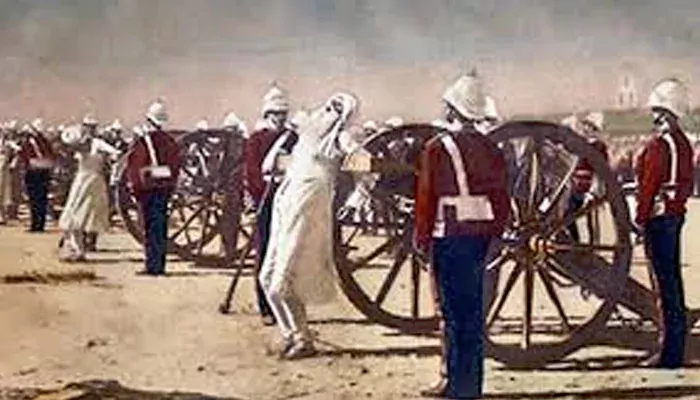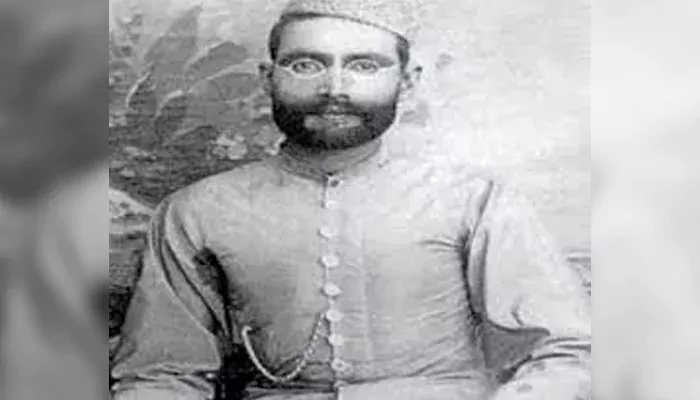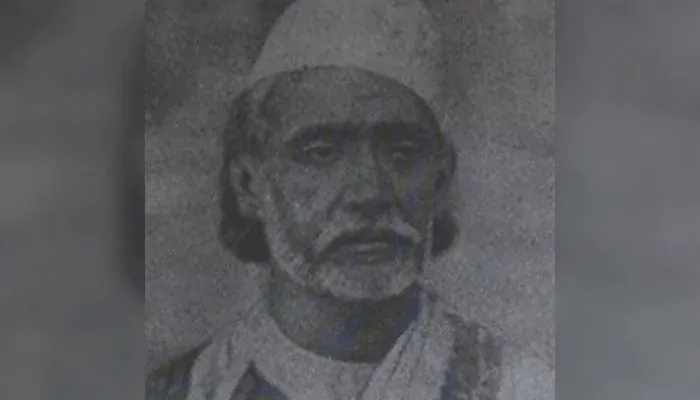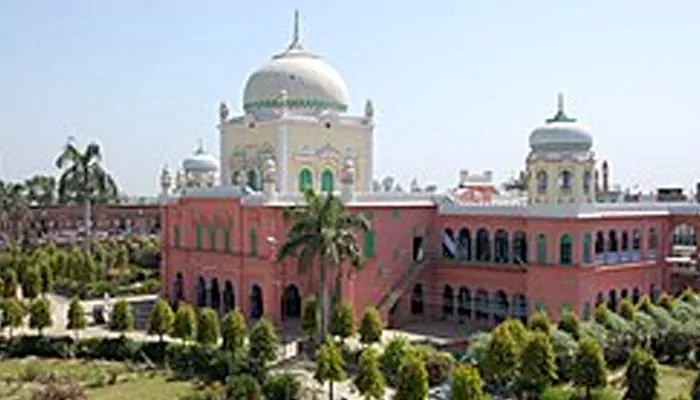
In the heart of British India, the call to prayer became a call to resist
In 1857, as unrest simmered into revolt across the subcontinent, a different kind of weapon emerged: the fatwa—a formal legal opinion or ruling issued by an Islamic scholar, known as an ulema. Far from being mere religious commentary, these legal pronouncements became declarations of war. Leading ulemas—Islamic scholars—invoked the concept of jihad, which in classical Islamic tradition refers to striving or struggle, often in self-defense or resistance to oppression.

One of the most significant voices was Maulana Fazl-e-Haq Khairabadi, a renowned scholar of Delhi. He used his authority to issue a fatwa declaring British rule un-Islamic. Collaborating with the East India Company, he said, was tantamount to siding against one’s faith. His fatwa urged Muslims to rise, not just spiritually, but physically.

Mosques in Delhi, Bareilly, and Faizabad became centers of resistance. Pulpits thundered with defiance, turning sermons into calls for action. Secret meetings followed prayers, forging unity and pledges of revolt.
In Bareilly, Maulana Sadruddin Khan Azurda, the Grand Mufti of Delhi, mobilised clerics to sign joint fatwas against British rule. In Faizabad, Maulana Ahmadullah Shah, known as the "Maulvi of Faizabad," turned from scholar to soldier. His knowledge of Sharia was matched by his strategic acumen on the battlefield.
It is important to understand how the ulemas interpreted jihad. In classical Islamic jurisprudence, jihad can be invoked in defence of one's homeland against foreign domination. British India, they argued, was under the control of a foreign Christian power that undermined both Islamic and Indian traditions.
Ulemas argued that British policies, including aggressive missionary work, land revenue systems, and military recruitment tactics, were eroding Islamic institutions. The loss of Mughal patronage and the annexation of princely states were viewed as further affronts to Muslim sovereignty.
Thus, these fatwas weren’t about religion versus religion—they were about foreign rule versus self-determination.
The British saw the threat: these clerics could mobilise the masses with words alone, reaching into the hearts of the devout.
The reprisals were swift. Fazl-e-Haq Khairabadi was arrested and exiled to the Andaman Islands. Maulana Ahmadullah Shah was eventually betrayed and killed. Dozens of clerics were hanged or imprisoned. Some escaped across the borders to Mecca or Kabul. But their messages endured—smuggled in handwritten notes, whispered in madrasa corridors, preserved in British intelligence records.

The failure of the 1857 revolt forced a rethink. Armed jihad had failed, but the intellectual one continued. The Darul Uloom Deoband, founded in 1866, emerged as a major centre of Islamic scholarship. Many of its founders were veterans of the 1857 uprising.
These scholars pivoted towards non-cooperation, education, and community revival. In the 20th century, figures like Maulana Mahmood Hasan launched the Silk Letter Movement—an underground network seeking help from the Ottoman Empire to overthrow the British. Fatwas were once again employed, but this time in coordination with nationalist strategies.
What’s striking is that these Muslim scholars often collaborated with Hindu leaders. In 1857, joint actions were common. The proclamations in Delhi spoke of unity. Later, during the Khilafat Movement, figures like Maulana Abul Kalam Azad and Gandhi would continue this cross-religious cooperation.
The fatwas of 1857 laid the groundwork for a broader idea—that colonialism was unjust not only politically, but morally and spiritually. Faith, they insisted, could inspire solidarity, not division.
Today, these ulemas rarely feature in our mainstream narratives. Their role is often overshadowed by kings, soldiers, and political reformers. Yet their contribution was critical. They gave the freedom struggle a spiritual legitimacy. They turned mosques into centres of courage. And they showed that resistance could be preached as much as it could be fought.
Their fatwas were not just legal opinions. They were bold declarations that freedom was a sacred duty. And for that, they paid dearly—with exile, imprisonment, and martyrdom. But their voices, once raised in defiance, still echo through the corridors of India’s long struggle for independence.